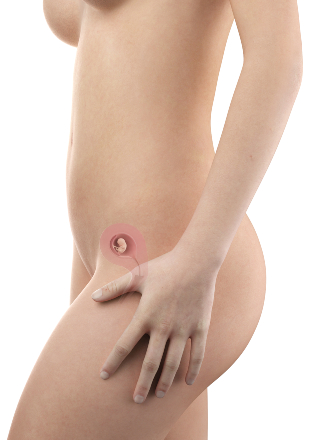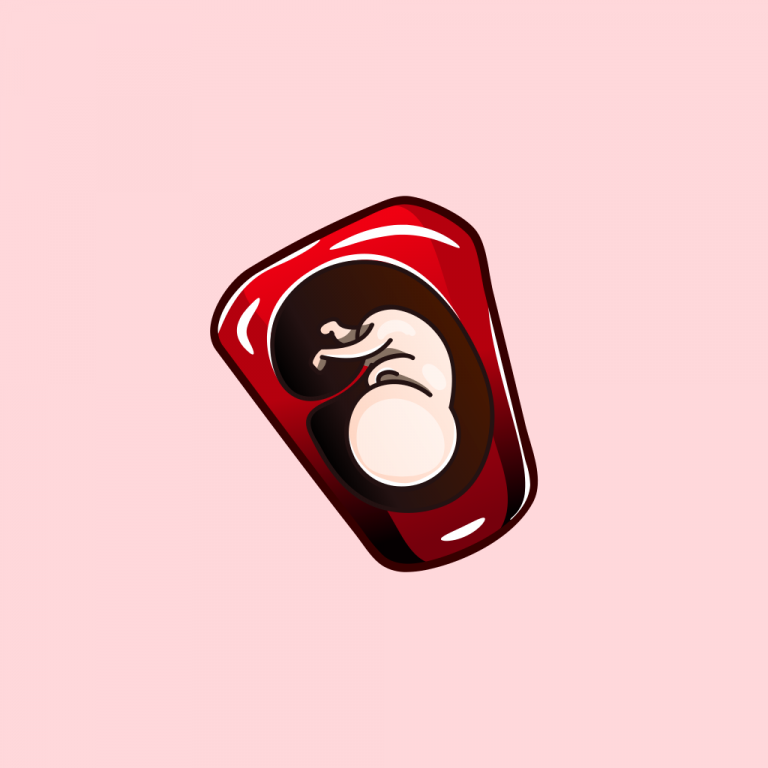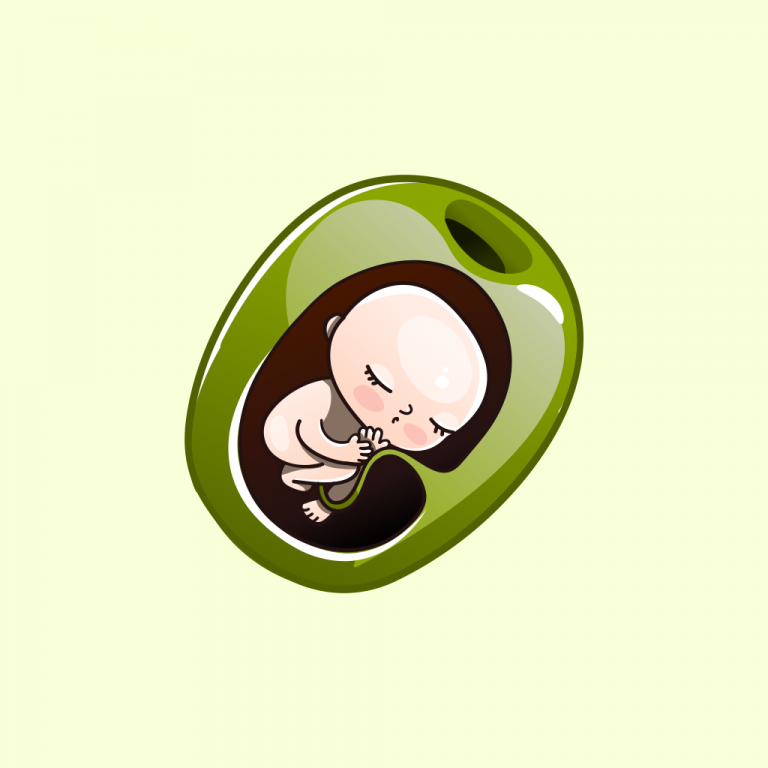Welcome to Week 6! This is an exciting stage in your pregnancy journey. You might be feeling a little overwhelmed, but remember, every feeling you have is valid, and you’re not alone. Your body is working hard, and your baby is growing quickly—even though you can’t see them just yet.
By this week, your baby is about the size of a lentil. While that may seem tiny, so many incredible changes are happening. The foundations for all of your baby’s vital organs are being laid out right now. Little buds are starting to form that will soon become tiny arms and legs, and the heart is already beating at a quick pace, pumping life and nutrients throughout your growing baby’s body. In fact, if you were to have an ultrasound, you might even catch a glimpse of this miraculous heartbeat.

For many women, Week 6 is when pregnancy symptoms become more noticeable. You might find yourself feeling more tired than usual—this is completely normal. Napping or taking short breaks can help keep your energy up. Morning sickness may appear, but don’t be surprised if it pops up at any time of day. Eating small, regular snacks (like crackers, fruit, or dry cereal) can be soothing. Sore or tender breasts, frequent trips to the bathroom, and mood swings are all common, too, so listen to your body and rest when you need to.
If you haven’t reached out to a healthcare provider yet, now is a good time to make your first prenatal appointment. These early check-ins are important for sharing your medical history, doing routine tests, and planning for a healthy pregnancy. Your doctor will be happy to answer any questions you may have, so don’t hesitate to ask—even about things that seem small.
- Your baby’s major organs, like the brain and heart, are forming quickly right now.
- It’s normal to feel more emotional or sensitive.
- Keeping hydrated and eating well-balanced meals will help you and your baby feel your best.
- If certain smells bother you, try avoiding strong odors and stick to foods that feel gentle on your stomach.
Remember, every pregnancy journey is unique. Be gentle with yourself as you adapt to these changes. You’re doing an amazing job, and every day brings you closer to meeting your baby.
Your Baby’s Development This Week
Welcome to week 6 of your pregnancy! This is an exciting time, as your little one is growing more every day, even though they’re still very tiny. Right now, your baby is about the size of a sweet pea — so small you wouldn’t be able to feel any movement yet, but so much is happening inside your womb.
Let’s take a closer look at how your baby is developing this week:
- The Heart Takes Center Stage: One of the most amazing things about week 6 is that your baby’s heart has started to beat steadily — often much faster than yours, at around 100–130 beats per minute. Although you probably can’t hear it just yet, this tiny heart is already working hard to pump blood and nourish growing tissues.
- Major Organs Begin Forming: All sorts of important organs are starting to develop. This week, the early versions of your baby’s lungs and digestive system begin to appear, laying the groundwork for healthy growth in the months ahead. Imagine little “blueprints” for the liver and stomach being drawn up and taking shape.
- Tiny Limb Buds Appear: Your baby’s body still curves gently like a little “C” and it has a teeny tail (which will disappear in a few weeks). What’s extra exciting about this week is the arrival of tiny buds where arms and legs will grow. These look like small bumps right now, but eventually, they’ll become the hands and feet that will one day squeeze your finger or take their first steps.
- Growing Brain Power: The brain is growing at a remarkable pace. Rapid changes are happening in the brain and spinal cord, as the building blocks for your child’s nervous system are put into place. In fact, small signals, called brain waves, are starting to fire, setting the stage for every thought, movement, and memory your child will experience.
- First Signs of a Face: This week, the earliest features of your baby’s face are beginning to show. Little spots on each side of their head will gradually become eyes. Small indentations will soon turn into tiny ears. The eyelids are forming, and their eyes are starting to darken as pigment develops.
- A Protective Bubble: Your baby is cushioned inside the gestational sac, floating in amniotic fluid, which helps protect them as they grow. Their delicate skin is still translucent, almost see-through at this stage.
By the end of this week, although you won’t be able to feel anything yet, your baby is already making progress toward becoming the person you’ll one day hold in your arms. Every bit of nourishment and rest you give yourself plays a vital role right now. Remember, even if you can’t see these changes, remarkable things are happening inside you. Take it one day at a time and celebrate these early milestones — your journey together has only just begun!
Changes in the Mother’s Body
By the sixth week of pregnancy, you might begin to notice more changes in your body, even if your friends or family can’t see them just yet. These shifts are your body’s way of making sure your baby gets everything they need to grow strong and healthy. It’s normal to feel excited, curious, or even a little overwhelmed as you adjust to these new sensations and experiences.
Hormones at Work
Much of what you feel in week 6 has to do with hormones. These powerful chemicals signal your body to nurture your baby and prepare for all the months ahead. You might find your moods changing quickly—one moment you feel on top of the world, and the next you want to cry at a TV commercial. If this sounds familiar, know that it’s completely normal, and these emotions are often a sign that your body is working exactly as it should.
Early Baby Bump and Bloating
At this stage, most women don’t have a visible baby bump yet, but you may notice your belly feels a bit fuller or bloated, especially in the evenings. Your digestive system is slowing down to help your body absorb more nutrients from food, which can sometimes lead to more gas or bloating than usual. Wearing comfy pants and eating slowly can help ease some of this discomfort.
Your Senses Are Changing
If foods or smells suddenly seem much stronger—sometimes even overwhelming—you’re not imagining things! During week 6, many women develop a more sensitive nose and taste buds. You might notice that you crave certain foods or, on the flip side, that favorite dishes suddenly don’t appeal to you. It’s perfectly fine to follow your preferences and avoid triggers if certain scents make you feel queasy.
Energy Ups and Downs
Feeling tired or wanting to nap more often happens because your body is working hard, even when you’re resting. This fatigue is partly due to hormonal changes and the fact that your body is already supporting the growth of the placenta. Try to listen to your body—rest when you can, and don’t feel guilty about taking it easy if you need to.
- Breasts and Chest: You might see your breasts growing, feeling heavier, or a little sore. Some women notice their nipples darkening or the veins on their chest becoming more visible. This means your body is already preparing for breastfeeding.
- Skin Surprises: Some women experience new acne, or see a change in their skin’s glow. This is likely due to increased blood flow and hormone shifts. Keeping your face clean with mild soap and staying hydrated can help.
- Spotting and Cramping: Light spotting or mild cramping can be normal but always let your healthcare provider know if you’re concerned or if the bleeding becomes heavier than a period.
- Vaginal Discharge: A little more discharge than usual is common at this point; it’s your body’s way of keeping your uterus safe from infection. If you notice an odd smell or color, check in with your provider.
Remember, every pregnancy is different, and your experience might not match what you read or hear from others. Trust your instincts and don’t hesitate to reach out to your healthcare provider with questions. What you’re experiencing now is your body’s special way of taking care of your developing baby, and taking care of yourself is the best first step on this exciting journey!
What Medical Checkups Should I Expect at 6 Weeks Pregnant?
Reaching week 6 of pregnancy is a big milestone—and it’s a great time to start focusing on your care and your baby’s wellbeing. Around now, many women schedule their very first prenatal visit. It’s natural to feel a little nervous or have lots of questions, especially if it’s your first pregnancy. Here’s what you can expect at this stage, and why these early checkups are so important.
- Confirming Your Pregnancy:
Your healthcare provider will usually want to confirm your pregnancy with a urine or blood test, just to be sure everything is progressing as expected. - Figuring Out Your Due Date:
You’ll talk about the first day of your last period to help estimate when your baby might arrive. This helps plan future checkups and keeps you and your doctor on track for your baby’s development. - First Ultrasound (If Needed):
Some doctors will offer a first ultrasound as early as week 6, especially if you have a history of pregnancy concerns or are unsure about your dates. At this stage, they might look for the gestational sac (where your baby is growing), check for a tiny fetal heartbeat, and see how things are developing. - Checking Your Health:
Getting to know your medical history is important. Your provider may ask about previous pregnancies, chronic conditions, any medications or supplements you’re taking, and lifestyle habits like smoking or alcohol use. Your overall health plays a big part in your pregnancy journey.
- Important Blood Tests: You may have blood drawn for several reasons. These tests check:
- Your blood type and Rh factor (important for future care).
- Immunity to infections like rubella (German measles) or chickenpox.
- Your hemoglobin levels, to rule out anemia.
- HIV and other common conditions, to help keep both you and baby healthy.
- Urine Tests:
A urine sample is often checked for signs of infections or other concerns like high sugar or protein levels, which can be important hints for your provider. - Setting Up Your Prenatal Care:
Your provider will explain how often you’ll be coming in for checkups, answer any questions you have, and talk about what to expect in the weeks ahead. - Early Screening Conversations:
If you have a family history of genetic illnesses or other concerns, this is a great time to discuss whether any special screening might be helpful for you and your growing baby—like carrier screening for inherited conditions.
All of these checkups and tests might feel like a lot, but they’re designed to keep you and your baby safe and well cared for. Don’t be shy about sharing how you feel, mentioning new symptoms, or asking as many questions as you need. Your care team is there to help guide you every step of the way.
Remember, there’s no need to prepare for your appointment in any special way—just bring yourself, your questions, and maybe a notebook to jot down information you’ll want to remember later.
Nutritional Tips and Physical Exercise
In week 6 of pregnancy, giving your body the right fuel and staying gently active are two of the best gifts you can give yourself and your developing baby. Your little one is growing quickly, and what you eat and how you care for yourself really matters right now. Here are some supportive tips to help you feel your best:
- Choose Colorful Foods: Build your meals around a rainbow of produce—think leafy greens, carrots, berries, and tomatoes. These foods are loaded with vitamins and antioxidants that support both you and your baby’s growth.
- Eating for Two, Not Double: You don’t actually need many extra calories yet, but focus on getting “more nutrition” from each bite rather than “more food.” Think about adding an extra glass of milk or a boiled egg instead of simply eating larger portions.
- Smart Snacking: Stock your kitchen with easy-to-grab snacks such as yogurt, hummus with sliced cucumbers, or a handful of nuts. These are nourishing choices if you’re feeling hungry between meals or need something gentle on your stomach.
- Manage Food Aversions: If certain smells or tastes are putting you off, don’t worry. Try bland foods like toast, rice, or bananas until your appetite feels more normal. Eating a little bit, even when you’re not hungry, can keep nausea at bay.
- Opt for Iron-Rich Foods: Your body is working hard to make more blood, so add sources of iron like beans, cooked spinach, or lean meats into your meals. Pair these with foods high in vitamin C (like strawberries or oranges) to help your body absorb the iron more easily.
- Steady Sips: Carry a water bottle and sip throughout the day. Herbal teas (such as ginger or peppermint) can be soothing if plain water isn’t appealing.
Staying active while you’re pregnant can boost your energy, ease stress, and help you sleep better.
Here are some gentle ways to move your body at this stage:
- Walking: A short daily walk—around the block or at your favorite park—can do wonders. Walking is safe, low-impact, and easy to fit into your routine.
- Stretching: Gentle stretches and pregnancy-safe yoga can help reduce aches, especially if you’re starting to notice new twinges or tight spots.
- Listen to Your Body: Don’t push yourself. It’s perfectly okay to rest when you’re tired. Even a few minutes of movement can help, but always stop if you feel dizzy, short of breath, or uncomfortable.
- Safe Environment: Avoid any risky moves or anything with a chance of falling. Skip contact sports for now and focus on steady, gentle movement.
Remember, every mom’s journey is unique. If you’re unsure what activities are best for you or have special health concerns, check in with your healthcare provider. Taking a little time for nourishing food and easy movement now sets a strong foundation for both you and your growing baby in the weeks ahead.
Weekly Checklist
Week 6 is a big milestone! This week, your baby is developing quickly and your body is working hard to support this new life.
Here are some gentle reminders and helpful tips to guide you:
- Schedule your first prenatal visit: If you haven’t already, call your healthcare provider to set up your first appointment. It’s a good time to gather any questions or health history you want to share.
- Begin a daily prenatal vitamin if you haven’t yet: Make sure your vitamin contains enough folic acid (aim for 600–1,000 micrograms) to help support your baby’s early brain and spinal development.
- Watch out for any unusual symptoms: Mild cramping and spotting can happen, but if you notice heavy bleeding, severe pain, or a fever, let your doctor know as soon as possible for peace of mind.
- Focus on gentle nutrition: Try to eat a variety of foods when you can—even if morning sickness is making things tricky. Soft fruits, smoothies, or toast can be helpful if you’re queasy.
- Stay hydrated: Sip water throughout the day. Keeping a water bottle handy or adding a splash of lemon can encourage you to drink more, which is important as your blood volume grows.
- Take breaks and get extra rest: If you’re feeling more tired than usual, listen to your body. Short naps and early bedtimes are perfectly okay in these early weeks.
- Choose comfortable clothing: Sore breasts and slight bloating are common now. Consider wearing a softer, more supportive bra and looser clothes to help you feel your best.
- Keep healthy snacks nearby: Nausea often feels worse on an empty stomach. Crackers, pretzels, or a banana on your bedside table can help first thing in the morning or during the night.
- Begin documenting your journey: You might enjoy jotting down your feelings or taking a weekly belly photo—even though changes are tiny now, these memories are special to look back on.
- Avoid risky foods and habits: Skip raw or undercooked meats, unpasteurized dairy, and alcohol. If you smoke or are exposed to toxic substances, seek support to reduce risks for baby.
- Share your news if and when you feel ready: Some women wait until after the first doctor’s visit or the end of the first trimester, while others share sooner. Choose what feels right for you and your family.
- Find support: If you’re feeling anxious or have questions, remember—you’re not alone. Reach out to a trusted friend, support group, or your healthcare provider for reassurance.
Every pregnancy is unique, and you’re already doing a wonderful job by taking care of yourself and your little one. Take it one day at a time, and remember to celebrate the small steps along the way!
When to Call Your Provider
It’s natural to feel extra alert to every change in your body during these first few weeks. While most symptoms are just a normal part of early pregnancy, there are some signs it’s important not to ignore. Reaching out to your healthcare provider for advice is always a good idea if something feels “off” or worries you.
Here are some situations where you should give your doctor’s office a call:
- Heavy bleeding or passing clots: A small amount of spotting can be normal, but if you notice bleeding like a period, large clots, or need to change pads frequently, get in touch with your provider as soon as you can.
- Severe stomach pain or cramps: Mild cramping can happen early on, but if you experience sharp, intense pains—especially if they don’t go away—it’s important to have it checked promptly.
- Sudden dizziness or fainting: Lightheadedness can occur, but if you actually faint or feel unable to stay balanced, let your provider know right away.
- High fever: If you run a temperature over 100.4°F (38°C) that doesn’t come down, especially if you also feel unwell or chilled, see your healthcare provider. Fever may be a sign of infection that needs attention.
- Severe nausea and vomiting: If you find you can’t keep any food or fluids down for more than a day, or you start to feel weak or dehydrated, call for advice. It’s important to avoid dehydration, especially now.
- Unusual vaginal discharge: A little mild, milky discharge is normal. If it turns green, yellow, or has a foul smell, or if you notice itching or burning, tell your provider as it could be a sign of infection.
- Burning pain when you urinate: Discomfort or pain with urination, especially if you also have a fever or back pain, could mean you have a urinary tract infection that needs prompt treatment.
- Sudden swelling in your legs, face, or hands: Some swelling is common in pregnancy, but if it comes on suddenly, is severe, or you also have headaches or vision changes, call your provider to be safe.
- Blurry vision, severe headaches, or confusion: If you notice these symptoms, it’s especially important to get checked right away, as they could be signs of something serious.
Remember, you know your body best. If anything doesn’t feel right or if you have questions, you never have to wait or worry alone—your healthcare team is always there to help you and your baby thrive. Trust your instincts, and never hesitate to reach out for guidance and reassurance.
Preparations for Baby
While it’s still early days, taking some time in Week 6 to gently prepare for your baby’s arrival can give you peace of mind and help you feel more connected to your growing little one. Remember, small steps you take now can make the journey ahead feel smoother and more joyful. Here are some simple ways to start your preparations at home and nurture your well-being.
- Create a Little “Calm Zone” for Yourself: Find a cozy spot in your home—maybe a comfy chair or your favorite corner—where you can pause, relax, and enjoy some quiet. This can become a special space to rest, read, or simply breathe when you need a moment to recharge.
- Start a Pregnancy Journal: Writing down your thoughts, feelings, or even symptoms each day can help you process this new experience. Jot down dreams for your baby or stick in ultrasound pictures as keepsakes. This journal may become a beautiful memory to look back on.
- Light Tidying Up: No need to start a major nursery makeover yet, but clearing a small drawer or shelf for baby items can feel good. This can be a gentle reminder that changes are coming and helps you feel organized early on.
- Share the News Thoughtfully: If you haven’t already, now might be the time to start thinking about when and how you’d like to tell close friends or family about your pregnancy. Sharing your excitement can bring extra support and encouragement.
- Start Exploring Childcare Options: If you think you might need childcare after your baby arrives, it’s never too early to begin asking other parents you trust for recommendations. This gives you plenty of time to consider what might work best for your family.
- Connect with Your Partner: Set aside a little time to talk openly about hopes, plans, or nerves. Even taking a relaxed walk together can be a chance to bond and dream about your future as parents.
- Read or Listen Together: Pick up a gentle book or listen to a podcast about early pregnancy and parenting. Choose resources that make you feel encouraged and supported, rather than overwhelmed.
Above all, remind yourself that it’s okay to take things slowly. Every thoughtful step, no matter how small, is a loving way to welcome your baby and care for yourself along the way.
Citations and References
- American College of Obstetricians and Gynecologists (ACOG) – Offers detailed guidance on early pregnancy symptoms, prenatal visits, and nutrition recommendations, including folic acid intake. Visit Source
- Centers for Disease Control and Prevention (CDC) – Provides comprehensive information on fetal development milestones, the importance of folic acid, and early prenatal care. Visit Source
- World Health Organization (WHO) – Discusses critical nutrition requirements, including micronutrients like folate, during pregnancy. Visit Source
- Mayo Clinic – Details week-by-week fetal development, maternal symptoms, and advice for managing morning sickness and other changes in early pregnancy. Visit Source
- Cleveland Clinic – Summarizes normal physical and hormonal changes at 6 weeks, tips for symptom management, and signs to monitor for healthy pregnancy progression. Visit Source
- National Institutes of Health (NIH) – MedlinePlus – Explains embryonic development stages, organ formation, and necessary maternal health adjustments during the first trimester. Visit Source










